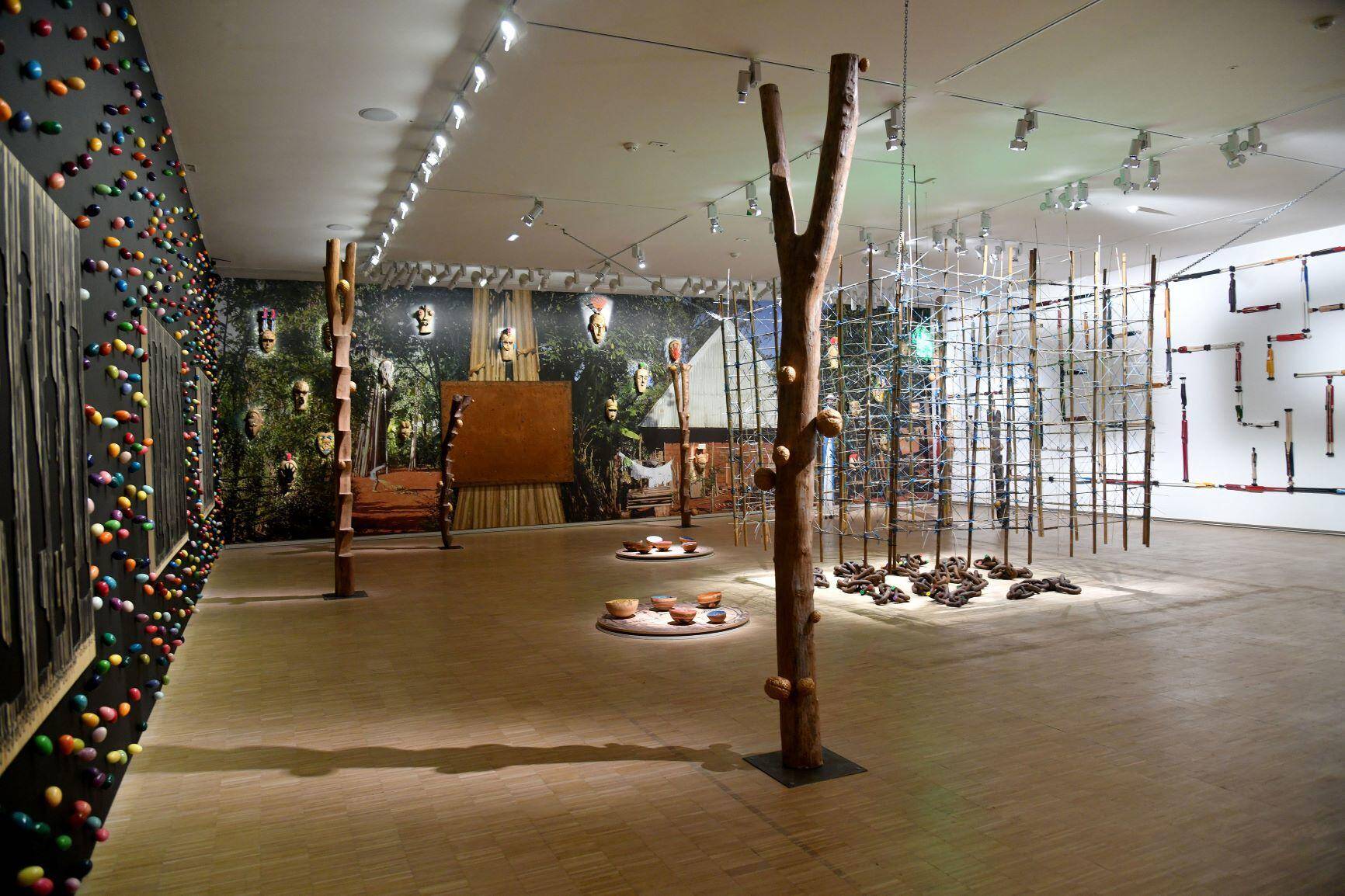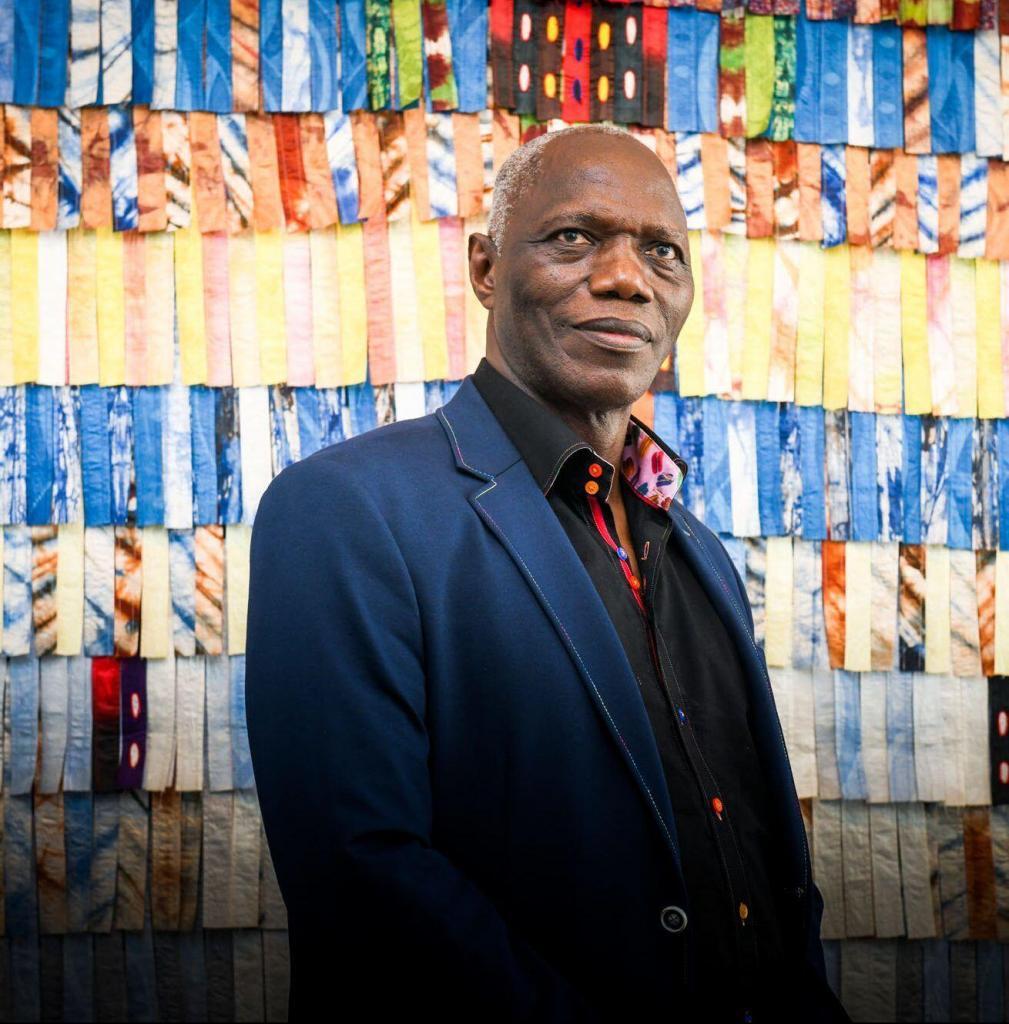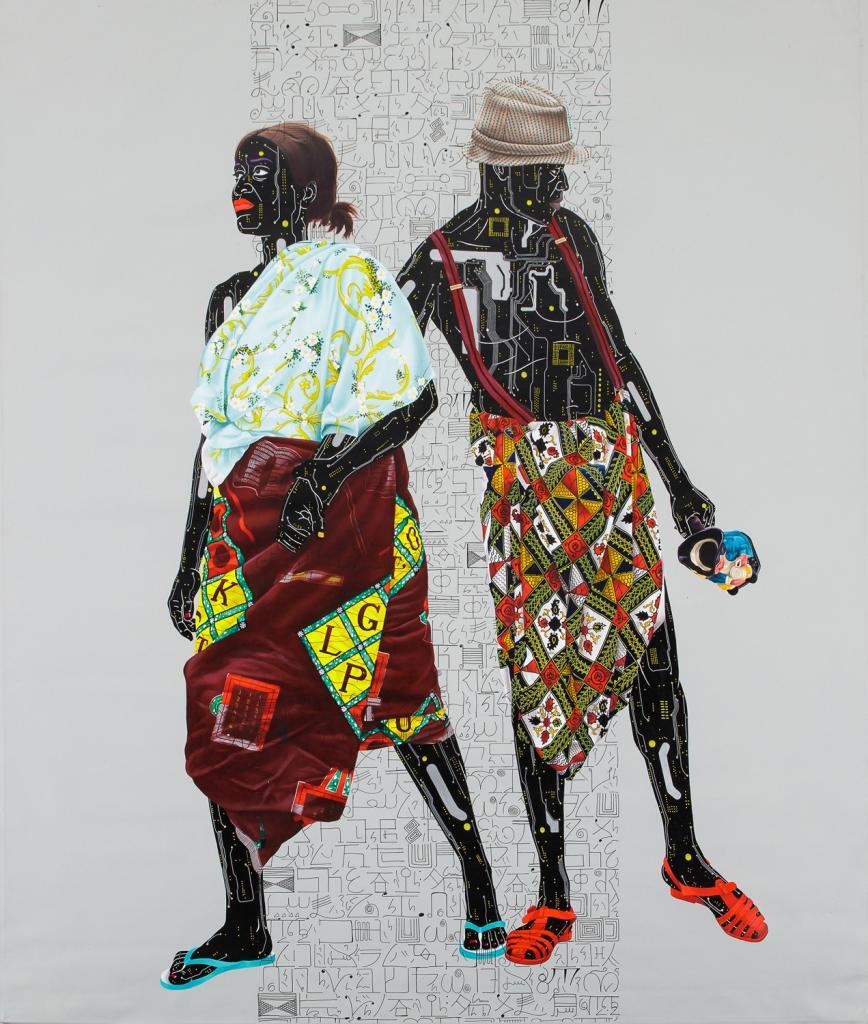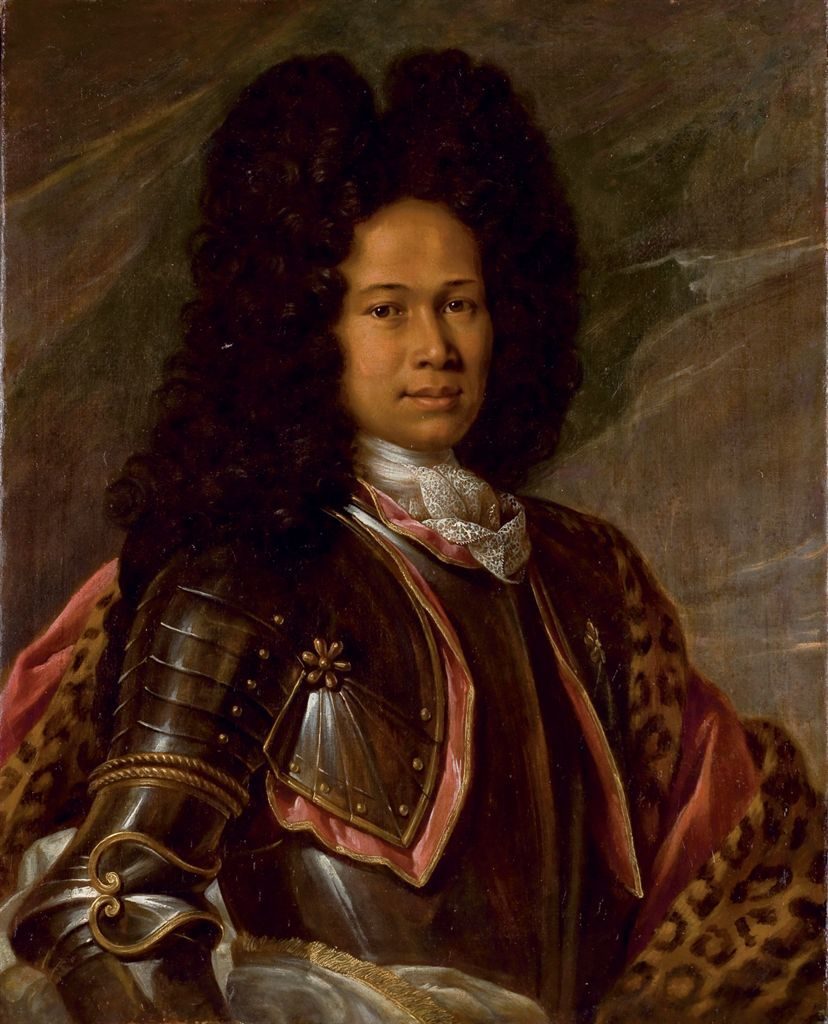Black Forest, an initiatory exhibition at the Clement Foundation
22/06/2020 - 27/09/2020Black Forest, is the great existential traffic jam, a mental walk that leads us on the steps of the “quest of the unknown” whose goal would be, to learn how to “become a true human being”.
An exhibition celebrating our incomprehensions
At the Fondation Clément, Black Forest, a title taken from an exhibition at MUDAM in 2011, brings together nearly a hundred works, iconic pieces and new productions, forming a path through which Pascale Marthine Tayou, the artist touches on the key points of today’s society as well as themes of the global village, travel, cultural identity, globalization, the porosity of borders, ecology and contemporary ritualization. This exhibition is an ongoing conversation, a stroll through the mysteries of the forest. Everyone can enter the exhibition in their own way with their own convictions, doubts, fears and try to hold hands with the crowd to share their own journey.

The artist’s personal journey
The Black Forest exhibition projects us into the intimacy of the artist’s life, transporting the Fondation Clément to places such as the artist’s native country, Cameroon, through a photographs serie’s of ceremonial scenes as so many memories. He brings us to his mother’s house, a family cocoon. According to Tayou, “the house is the portrait of life. It is another facet of our identity”. In his works, the artist always refers in implicit and recurrent ways to his origins, to the red and nourishing soil of Cameroon.
Yet in Tayou’s work, identity cannot be fixed or static, it is plural and in movement: “I do not subscribe to this particular notion of a superior and universal identity. Why should one place be more interesting than another? ” he explains. Aware of living in a polarized world, the artist believes in a global citizenship where identity divisions, whether sexual, ethnic or religious, would cease. It is a world in perpetual change, because exposed to human choices, it is a world that, like a theatre set, allows itself to be travelled through, inhabited by multiple identities. A world that tells the story of humanity and its past, and that irrigates the imagination by focusing on human experience and adventure…

Black Forest, is conceived as a journey through unknown and open territories, “a walk in live at the heart of the paths of our existential doubts”, “a moment of questioning about the imagination of the great world and its content” as he himself says. Like an introspective exhibition based on the notion of the forest, the land of all encounters, the exhibition displays the artist’s vocabulary of multiple and deliberately mobile writings, suspended between the dreamlike narrative of everyday life and the need to hybridise situations, human particularities and geographies.
Pascale Martine Tayou
Pascale Marthine Tayou (Nkongsamba, Cameroon, 1966) is internationally known since the 1990s and especially since his participation at the Dokumenta 11 (2002) and the Venice Biennale (2005 and 2009). Variability characterizes his work. He explores all types of mediums – sculpture, installation, drawing, video – and although the themes addressed are multiple, they all take the artist’s image as their starting point. At the beginning of his career, Pascale Marthine Tayou took on a double feminine name: Pascal (e) Marthin (e). He thus ironically distances himself from the idea of a demiurge artist, from the categorization of man/woman and from any geographical or cultural limitation.
His works build bridges between civilizations and reveal the ambiguous links between man and nature. More importantly, they underline that these different relationships are the result of social, cultural and political constructions. His work is deliberately mobile, elusive, heterogeneous and far from pre-established patterns. It is always closely linked to the idea of travel and contact with the other and is so spontaneous that it seems almost casual. Tayou’s creations all have one thing in common: they present the image of man moving around the world and exploring the question of the global village. It is in this context that Tayou approaches his African origins and the questions they raise.

For more than thirty years, Pascale Marthine Tayou, has been creating his own vocabulary from images and forms from all over the world, mixing rejects or waste from consumer society, national, religious or economic symbols, and heterogeneous artistic references. Thus he embraces the connected realities of the contemporary world, gathering impressions, materials and fragments of moments gathered from the succession of places he has inhabited, whether for an hour or for several years. Moving naturally from sculpture, drawing, painting, installation and poetry, he offers another look at the daily life under an apparent aesthetic casualness. His prolific and generous practice is punctuated by large building sites, large series that unfold over time and can be reopened at any time. This is also how his exhibitions unfold, like a continuous thread across the planet.




